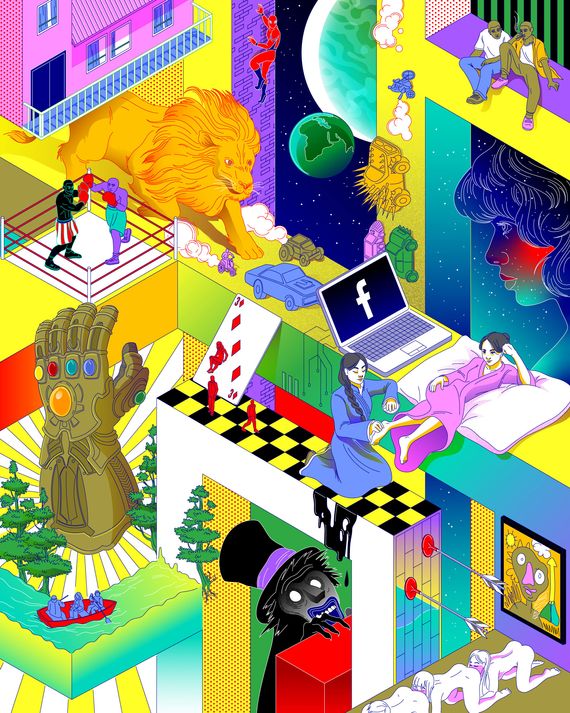Woman frequent need to urinate
Frequent trips to the bathroom, not sleeping through the night, or refraining from going places for fear that they will leak urine, are often familiar to women who experience frequent urination. Each person may urinate a different number of times per day depending on how much they drink and how well their kidneys work. According to the Cleveland Clinic, the average person should urinate somewhere between between six and eight times in a hour period. While an individual is occasionally likely go more frequently than that, daily incidences of urinating more than eight times may signal a concern for too-frequent urination. Sometimes, frequent urination is due to drinking too many drinks that are known to increase urine production or irritate the bladder.
Content:
- What Are the Different Reasons for Frequent Urination?
- Why am I urinating so often?
- Trending Now
- What Your Bladder Is Trying to Tell You About Your Health
- Frequent Urination in Women
- An Overview of Frequent Urination
- Frequent or Painful Urination
- Urination Problems
- Urinary Problems and Injuries, Age 12 and Older
- Frequent urination in women
What Are the Different Reasons for Frequent Urination?
UA Lone Tree. UA Englewood. UA Littleton. UA Denver. Urination is the process of passing liquid waste from the body in the form of urine. For most people, the bladder holds urine until it is convenient for them to use the toilet. Urination is normally painless.
Most people urinate four to eight times a day depending on fluid intake. Frequent urination is when a person needs to urinate much more often, experiences an urgent need to urinate or when a person urinates more frequently than is normal for him or her.
Painful urination also called dysuria is more common in women than in men. In both men and women it results in pain, discomfort, burning or stinging. Pain may be felt at the spot where urine leaves the body urethra or inside the body at the prostate in men , bladder or behind the pubic bone at the lower part of the pelvis.
Frequent urination or painful urination can indicate another physical problem and should be evaluated by a physician. Sometimes frequent urination and painful urination go together. In women, painful urination is most often a symptom of a urinary tract infection UTI. UTIs often include an urgent need to urinate, uncomfortable, painful or burning sense when urinating, fever, and a painful or uncomfortable abdomen.
Rarely, bladder cancer, bladder dysfunction and radiation therapy or other cancer treatment can cause issues with frequent urination. Frequent or painful urination can be a symptom of a variety of health conditions requiring treatment.
Symptoms of frequent urination that call for a visit to the physician as soon as possible include:. People should see a physician when urinary frequency increases with no obvious cause such as drinking an unusual amount of fluids , especially if other symptoms are present.
The physician will study the symptoms listed above and take a complete medical history to determine the cause of the frequent or painful urination. He or she may order additional tests, such as:.
Whenever possible, physicians treat frequent or painful urination by determining what underlying problem is causing the symptoms, and treating that problem. For example:. Sometimes, behavioral treatments may also help alleviate symptoms of painful or frequent urination. These are activities the patient can do to minimize or eliminate symptoms for conditions such as OAB.
Behavioral treatments might include:. Treating the underlying cause often eliminates or reduces painful urination. People can also undertake lifestyle changes to prevent painful urination. Treatments include:. Now Scheduling Virtual Visits! Frequent or painful urination at a glance Frequent or painful urination occurs when a person urinates more often than is normal for him or her and when urinating causes pain, burning or stinging.
Painful or frequent urination is most often a symptom of another condition. Most treatments for these conditions treat the underlying condition or include behavioral changes a person can make to feel better.
Why am I urinating so often?
You may want to look at their policies. Normal bladder capacity ranges between to ml. A person with a healthy bladder urinates between six to eight times a day.
UA Lone Tree. UA Englewood. UA Littleton. UA Denver. Urination is the process of passing liquid waste from the body in the form of urine.
Trending Now
Frequent urination means having an urge to pass urine more often than usual. Many people live with frequent urination, known medically as frequency. When one urinates more than 3 liters a day of urine, this is known as polyuria. Often, there is often a simple cause that can be put right through treatment. Frequency is not the same as urinary incontinence , where there is leakage of urine. Sometimes, frequent urination can indicate a more serious condition. Early identification of the problem can lead to a timely and effective treatment and prevent complications. Urination is the way the body gets rid of waste fluids. Urine contains water, uric acid, urea, and toxins and waste filtered from within the body.
What Your Bladder Is Trying to Tell You About Your Health
The female bladder stores and passes urine at the appropriate time and place. When there are problems with bladder function, the patient will need to visit the toilet often, may be unable to pass urine, or may even leak urine. Urgency is a strong and sudden desire to void which, if not relieved immediately, may lead to urge incontinence. Urge incontinence is an involuntary leakage of urine, usually preceded by urgency.
The frequent need to urinate is typically unpleasant, and sometimes it's even a sign of a serious medical issue. Most people can sleep through the night without having to urinate, or only need to get up once to use the bathroom. Adults typically pass roughly 3 cups to 3 quarts milliliters to 3 liters of urine in a day.
Frequent Urination in Women
This could mean passing more urine than usual, or repeatedly producing small amounts. There are a few reasons why women especially may experience frequent urination, including as a symptom of urinary tract infection UTI , or because of being oestrogen deficient when going through the menopause. Well, the NHS advises it could mean going to the toilet anywhere between four to eight times a day and once in the night.
SEE VIDEO BY TOPIC: Urinary Tract Infection CausesThere can be many reasons why women may find themselves needing to urinate more often than usual. By answering a short series of questions, you will gain a quick understanding of the likely causes of your urinary frequency. Please keep in mind that this guide is a learning tool and not a substitute for consultation with your own doctor. There are two main reasons why you need to urinate frequently -- either your kidneys are making a lot of urine and your bladder fills up quickly, or you might have an urge to go to the bathroom often even though there is only a small amount in your bladder. Yes, I urinate only a little each time.
An Overview of Frequent Urination
Back to Urinary incontinence. Urinary incontinence is when the normal process of storing and passing urine is disrupted. This can happen for several reasons. Some of the possible causes lead to short-term urinary incontinence, while others may cause a long-term problem. If the cause can be treated, this may cure your incontinence. Stress incontinence is when the pressure inside your bladder as it fills with urine becomes greater than the strength of your urethra to stay closed. Your urethra is the tube that urine passes through to leave the body. Any sudden extra pressure on your bladder, such as laughing or sneezing, can cause urine to leak out of your urethra if you have stress incontinence.
Top of the page Check Your Symptoms. Most people will have some kind of urinary problem or injury in their lifetime. Urinary tract problems and injuries can range from minor to more serious. Sometimes, minor and serious problems can start with the same symptoms. Many urinary problems and injuries are minor, and home treatment is all that is needed to relieve your symptoms.
Frequent or Painful Urination
Incomplete bladder voiding often goes unnoticed until it reaches its end stage, known as overflow incontinence. Overflow incontinence can be caused by nerve damage from diabetes or multiple sclerosis or by a blockage in the urinary tract, such as a kidney stone, or a urinary tract tumor that constricts the urethra. When a woman has difficulty urinating, it is a sign of one of the underlying conditions described above.
Urination Problems
Frequent urination is often caused by drinking lots of liquids, especially caffeine. While it could be a simple reason such as the medication you're taking or a urinary tract infection UTI , it could also be a sign of chronic condition such as interstitial cystitis or diabetes. The obvious symptom of frequent urination is just that—needing to urinate more often than usual. It might happen during the day, or it might happen more at night, a condition called nocturia.
.
Urinary Problems and Injuries, Age 12 and Older
.
Frequent urination in women
.
-
 Mikajora
MikajoraI think, that you are mistaken. I suggest it to discuss.
-
 Malagore
MalagoreI can not take part now in discussion - it is very occupied. I will be free - I will necessarily express the opinion.
-
 Arashitaxe
ArashitaxeYou are not right. I can defend the position. Write to me in PM, we will communicate.
-
 Dak
DakExcuse for that I interfere … here recently. But this theme is very close to me. I can help with the answer. Write in PM.








